20:50
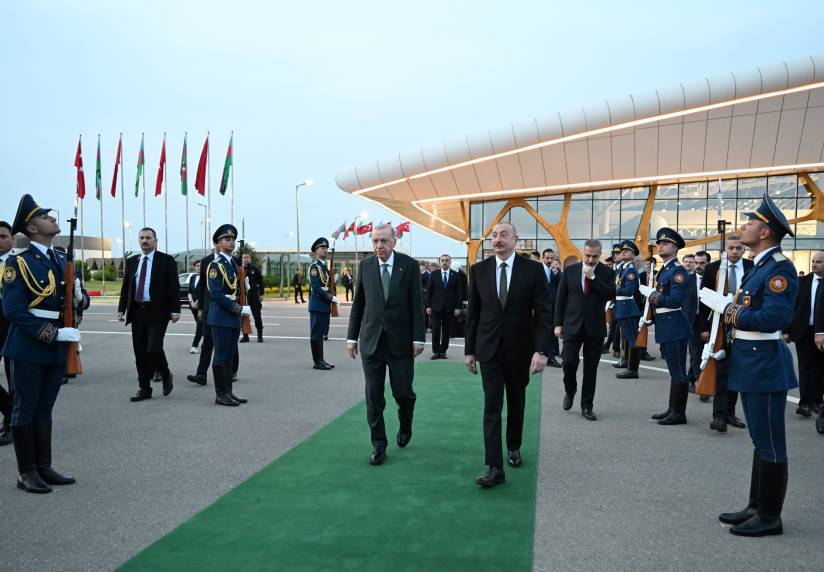
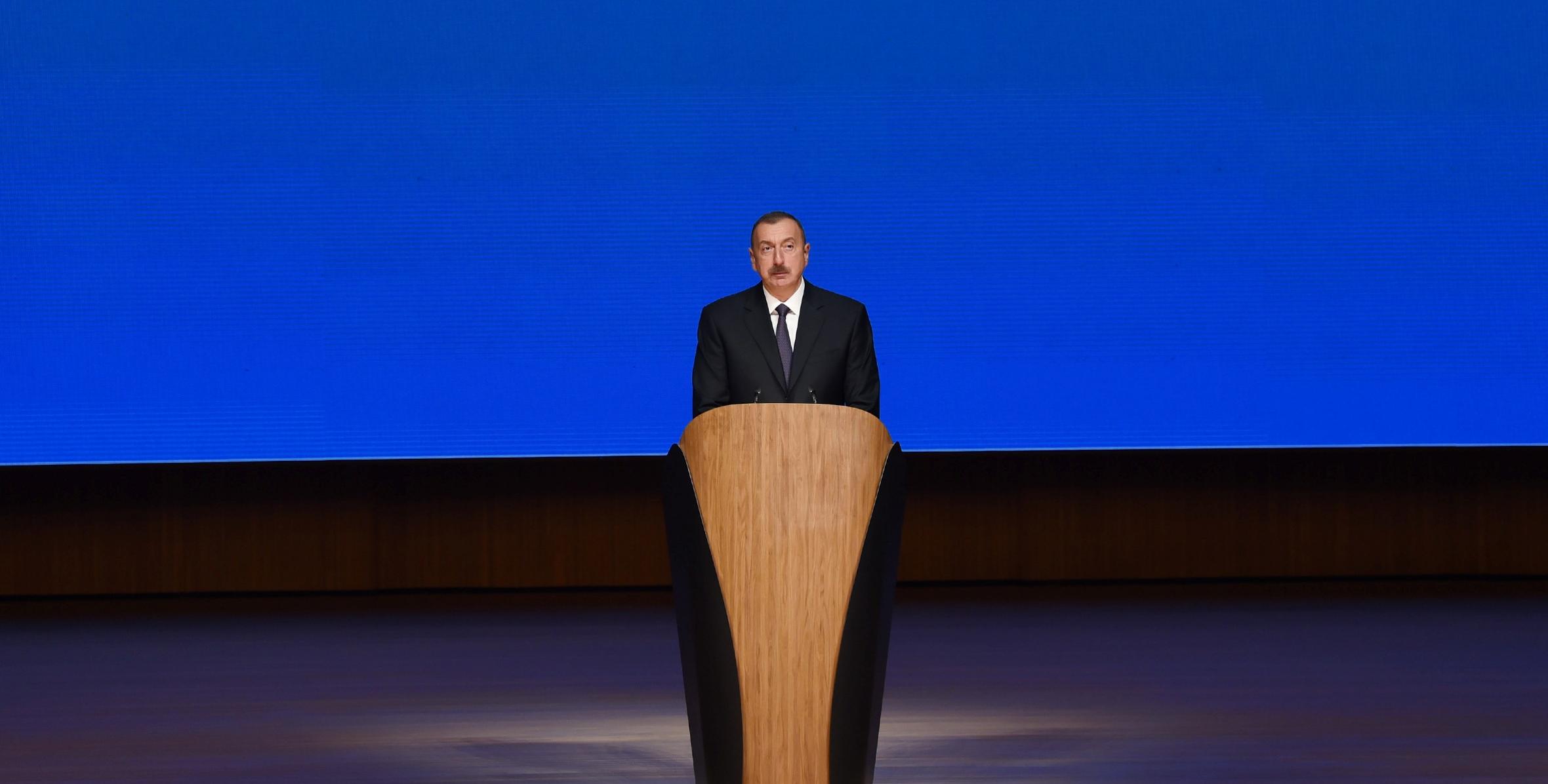
A solemn ceremony to celebrate two billion tons of oil production in Azerbaijan has been held at the Heydar Aliyev Center.
President of the Republic of Azerbaijan Ilham Aliyev attended the ceremony.
The head of state made a speech at the event.
Speech by President Ilham Aliyev
- Dear oil workers,
Ladies and gentlemen!
It is a very significant day in the life of our country today. Azerbaijan has produced two billion tons of oil to date. I congratulate Azerbaijani oil workers and the entire Azerbaijani people on this occasion.
This is a historic event. Azerbaijani oil workers have served their people at all times. In the years of independence, it was thanks to their hard work that Azerbaijan managed to create a great economic potential. An oil worker is an honorable and respected profession in Azerbaijan. This has always been the case and it is the case today. I appreciate the role of Azerbaijani oil workers in the overall development of Azerbaijan.
Azerbaijan is the motherland of oil. Everyone in our country knows this. The world community also knows that the world’s first oil was industrially produced in Azerbaijan in 1846. At that time, Azerbaijan provided most of the world’s oil. The world’s first offshore oil was also produced by Azerbaijani oil workers in the middle of the 20th century, and this is also a historic event. During the Soviet period, Azerbaijani oil workers played a major role in the discovery of all Caspian oil and gas fields. Their role in the discovery of new oil fields in the Russian Federation is also great. It is no coincidence that there are places called "Second Baku", "Third Baku", which are associated with the names of Azerbaijani oil workers. Our oil workers have served in foreign countries. They were sent to work there. Of course, this is evidence of the professionalism and dedication of the people working in Azerbaijan’s oil industry.
Azerbaijan is known worldwide as an oil country. Today we are also known as a gas country. Very important steps have been taken in this direction in the years of independence. During the Soviet era, Azerbaijani oil workers made a huge contribution to the overall development of the Soviet Union. At that time, Azerbaijan was the second republic of all union republics known as a donor. In other words, we transferred more funds into the all-Union budget than we received from it. Of course, the contribution of Azerbaijani oil workers to that was great.
In 1971, with the participation of great leader Heydar Aliyev, a ceremony marking the extraction of one billion tons of oil in Azerbaijan was held. In the 1970s and 1980s Heydar Aliyev made an immense contribution to the overall development of the Republic of Azerbaijan. This includes major steps taken to develop the oil industry. At that time, the increase of oil production, the commissioning of new facilities, the construction of a deep-water jackets factory in Azerbaijan, the reconstruction of an oil refinery and other important events significantly strengthened the oil potential of Azerbaijan. The potential created in those years, in particular, the operation of the deep-water jackets factory, strengthens our oil potential even today. If this factory had not been built in Azerbaijan but elsewhere, then our work with foreign partners could go slowly during the independence period. The deep-water jackets factory plays a special role in the implementation of our oil strategy.
After Heydar Aliyev’s departure from Azerbaijan, a recession began to gradually manifest itself in the oil and gas industry, and indeed all other areas. On the eve of the 1990s, there were already problems related to oil production. In the early years of independence, these problems exacerbated further. The first years of independence were very difficult for us – the country was in an uncontrollable state. The people running the country failed to realize their responsibility. Incompetent and often even illiterate people were put forward. The country was engulfed with chaos and anarchy. Illegal armed groups dictated their terms in Baku and other cities. As a result, all these negative events led to civil war. Heydar Aliyev fulfilled his historic mission again. He saved Azerbaijan from these terrible woes and brought stability to the country. Azerbaijan embarked on a path of development. It is from 1993 onwards that Azerbaijan has been following the path of development.
However, the blows dealt to Azerbaijan’s economy and industry, including the oil industry, were quite severe. This ceremony today brings together well-known oil workers of Azerbaijan, veterans and people who remember those years too well. They are well aware of the state of Azerbaijan’s oil industry in the early 1990s. We had to look for and find a way out of that situation, and Heydar Aliyev's oil strategy was the only way out. The signing of the "Contract of the Century" in 1994 created a watershed in this sphere. The signing of the "Contract of the Century" is a historic event. At that time, Azerbaijan was a newly independent state and, as I have already said, was left face to face with very difficult challenges. The economy was in complete ruins, industrial production was paralyzed, inflation amounted to thousands of per cent, there was pervasive unemployment, and level of poverty was surging. Under such circumstances, to attract foreign investment to Azerbaijan required great wisdom and foresight. Heydar Aliyev's oil strategy provided a response to these challenges. The "Contract of the Century" signed with foreign partners in 1994 was a way out for us. It gave us strength, breathed life into us and brought investment. Azerbaijan became known all over the world. The interest of large companies in Azerbaijan, especially the oil and gas sector of our country, increased, and this interest led to practical business.
I remember those years quite well. In 1994, a group of executives from the State Oil Company was sent to the American city of Houston for negotiations. The negotiations lasted for more than a month. Khoshbakht was actively involved in those negotiations. As a result of those talks, a contract was signed in September. The contract was signed on the most acceptable and profitable conditions for the time. We said this back then as well – in 1994. At that time, we had practically no specialists capable of analyzing the terms of the contract. But we knew that Azerbaijan's interests would be secured to the maximum extent, and today's realities show that.
This contract is in force today. Thanks to the contract, investments worth billions of dollars have been made in Azerbaijan. As a result of the execution of the contract, thousands, tens of thousands of Azerbaijani specialists have been trained and received education, and today the absolute majority of consortium employees are Azerbaijani citizens. Thanks to the contract, major infrastructure projects have been implemented in Azerbaijan. Large-scale construction work has been carried out. The country's economy has received revenues amounting to billions, tens of billions of dollars.
Year 1994 was a turning point for Azerbaijan’s oil industry. The historical significance of the "Contract of the Century" has already been confirmed. It has also opened the way for us. The contract has shown that Azerbaijan as a young and independent state can work with foreign partners properly and protect its national interests. Thus, interest in us has increased, and so have investments in our country. Numerous contracts were signed, among which the Shah Deniz contract deserves a special mention. The contract signed in 1996 plays an exceptional role in the energy security of Azerbaijan and Europe today.
Oil workers will know very well that there was not much interest in gas fields in the world at that time. It was considered a low-profit industry and no-one talked about energy security at all at the time. Whilst analyzing various parameters of the Shah Deniz field, a number of specialists sometimes concluded that this project was not economically viable. But life has showed that this project is economically very attractive. It has played a very positive role in strengthening the economic and political potential of our country.
Today, Azerbaijan is known in the world as an oil and gas producing country. Our role and power in the world are growing, and this is underpinned by the oil strategy of Heydar Aliyev. The 1990s saw many historical events related to the oil industry. In particular, I should note the commissioning of the Baku-Tbilisi-Ceyhan oil pipeline. Great leader Heydar Aliyev laid the foundation of this pipeline with his own hands, and we put it into operation in 2006. The Baku-Tbilisi-Erzurum gas pipeline began operating in 2007. It is the main infrastructure project for our gas exports today. It is on the basis of this project that the "Southern Gas Corridor" project is being implemented. In the 1990s, the Baku-Novorossiysk oil pipeline was refurbished and the Baku-Supsa oil pipeline built. So the foundation of our oil infrastructure was laid then. This process was continued in the 2000s.
Currently, the most advanced drilling rigs and platforms are built in Baku. All construction work for the Shah Deniz-2 project was carried out in Azerbaijan. Thousands and perhaps tens of thousands of Azerbaijani citizens were involved in this work. The world's biggest Sangachal oil and gas terminal is also our greatest asset. To conduct oil operations, our shipyard produces vessels of all types. One of them – we have called this giant vessel Khankendi – was launched only recently.
In other words, the results of the "Contract of the Century" today are measured not only by the revenue flowing into the Oil Fund. It has had a very wide and huge impact. We have managed to convert the "black gold" into human capital. We have used our oil revenues very rationally, and this is specifically noted in the world today. Many countries have rich oil fields, but live in abject poverty. Stability in these countries is disturbed and oil brings them disaster. In Azerbaijan, oil has brought prosperity, development, stability and strength. The oil and gas factor has contributed a lot to Azerbaijan living as an independent country and having a strong economic potential. Everyone should know this.
At the same time, Azerbaijan demonstrates how the state and foreign investors should work together and what principles this work should be based on. Azerbaijan shows an example also in this, as we have established cooperation with our partners, in particular the main strategic investor BP, on a very sound basis, on a foundation of mutual support, mutual trust and mutual interests. The investors, the consortia investing billions of dollars in Azerbaijan and the Azerbaijani state have received major profits. Both sides benefit from this, and this forms the basis of our successful cooperation.
I would like to emphasize the activities of BP in Azerbaijan today. BP has been our partner for the past 23 years, playing a very active role in leading projects together with us. I want to point out that that of 2 billion tons of oil we have extracted about 700 million tons were produced in the years of independence, of which 460 million tons were produced by the consortium. So our people should know what a great role foreign partners, especially BP, have played in the development of Azerbaijan and the strengthening of its economic potential. I want to reiterate that underlying all this is the cooperation between the state and foreign partners.
The cooperation between BP and SOCAR serves as an example for many countries today. The "Contract of the Century", as well as the contract signed and being implemented for the Shah Deniz field, have together turned the State Oil Company into a major international company. Several years ago, I set the goal of turning SOCAR into a large international oil company. To this end, we have expanded the activities of SOCAR. Many enterprises were transferred to it. Today, the State Oil Company of Azerbaijan works actively both in the country and abroad. Our investments abroad amount to billions of dollars. Almost $20 billion is to be invested in projects in Turkey alone, of which half has already been invested. SOCAR is doing a lot of work, has investments in other countries – European states and neighboring countries. The Azerbaijani state supports the activities of SOCAR. This enhances our economic power. In the future, this will also secure a large inflow of currency from new sources. I would like to note two projects being implemented in the country now – the construction of SOCAR’s polymer and carbamide plants of SOCAR. These two projects are of great importance for the development of the country's non-oil sector. Both projects are being implemented on schedule, and I am sure that they will be put into operation next year.
Thus, the oil strategy of Heydar Aliyev has been enriched with new directions today. This strategy provides tremendous support for the overall development of Azerbaijan. We are currently working on new projects. As you know, the Southern Gas Corridor is well under way. This is also a giant project on a global scale. Investments in it amount to $40 billion, and all work is on schedule. Shah Deniz-2 and the South Caucasus Pipeline have been implemented by almost 100 per cent and TANAP by more than 80 per cent. Thus, we are successfully implementing the Southern Gas Corridor project as well, and I am sure we will fully implement it.
A new agreement related to the extension of the "Contract of the Century" was signed this year. This is also a historic event. A contract has been signed on more favorable terms until 2050. As a result of the implementation of this contract, Azerbaijan will receive $3.6 billion as a bonus alone. The share of the State Oil Company has been increased from 11 to 25 per cent. At the same time, SOCAR will act as the operator, and Azerbaijan will retain 75 per cent of the profit oil until 2050, i.e. for the entire duration of the contract.
This shows once again that we have ample natural resources. I remember quite well that when we were building the Baku-Tbilisi-Ceyhan oil pipeline, there were forces trying to obstruct our work. Campaigns of slander were conducted against us. The environmental theme was artificially put forward, as if there would be an environmental impact. Just look at the once polluted parts of Baku where we have established parks. We have created a paradise there. Look at what the Bibiheybat field, our oldest field, looked like before and what it looks like now. The previous appearance was a disaster. Today it is one of the most beautiful parks in Baku. So we are investing a lot in improving the environmental situation. At that time, they tried to interfere with our work under this pretext.
The second topic was related to oil reserves. It was said that there is no oil in Azerbaijan, that it was not necessary to build the Baku-Tbilisi-Ceyhan pipeline as it would never justify itself. We have been producing oil together with the consortium since 1997, for 20 years. As I have already mentioned, the consortium has produced 460 million tons of oil from Azeri-Chirag-Gunashli alone. But there are still great confirmed reserves. The extension of the contract until 2050 indicates that we have enough oil – no-one should be worried. They wanted to raise the same topic in connection with gas. Once again the ill-wishers, those who do not like us started to spread rumors that there is no gas in Azerbaijan. Today, the Shah Deniz-2 project is a reality. I should note that our confirmed and corrected oil reserves constitute 1.5 billion tons, and according to forecasts up to 2 billion tons. Confirmed gas reserves are 2.6 trillion cubic meters, and the forecast is approximately 3-4 trillion cubic meters. The development of the Azeri-Chirag field demonstrates that we always put forward very conservative figures. I remember quite well that when the contract was being signed in 1994, the reserves of the Azeri-Chirag-Gunashli field were estimated at 511 million tons. As a young worker of the State Oil Company back then, I wondered how it was possible to calculate with such accuracy – 511 million tons. Why not 510 or 512 million, but 511? Of course, this was a conventional figure. Today's calculations suggest that actual reserves of the fields are at least twice as large because of those conditional 511 million tons, 462 million have already been extracted. Look at how much oil there will be until 2050.
Therefore, I am sure that our forecasts will be confirmed because we assess the available resources very conservatively. The Azeri-Chirag-Gunashli field will operate at least until 2050. I am sure that the Shah Deniz field will operate for at least 100 years. In the near future, we expect gas production from the Absheron field. There are great prospects in the fields Umid and Babek. Starting from next year, the State Oil Company will be working very actively in these fields. Some work is already being done but even more work remains in the offing.
Our financial situation is very stable and positive. We have no problems. Ill-wishers are trying to discredit us in this too, claiming that our financial situation is allegedly not good. Our financial situation can serve as an example for many countries. In 10 months of this year, we have increased our foreign exchange reserves by $4.5 billion. Before the end of the year they will increase further. Our external debt accounts for 18 per cent of the gross domestic product. This is a figure desired for many countries – it sounds like a miracle. Our economic success is recognized by Davos, the world’s leading economic forum. We are in 35th place on a global scale. We do not have any financial problems or difficulties. A large amount of money will be allocated to the oil industry next year. Of course, the State Oil Company earns money itself, but the state always supports and should support this company, because it is our strategic asset.
Azerbaijan has fully provided for its energy security. We used to receive gas from abroad, but now we are selling it abroad. We used to receive electricity, but now we are selling it. We sell oil and oil products. We will sell large volumes of gas, and the country will receive more money. We use these funds very rationally and transparently. As you know, the revenues from oil are transparent stored in the State Oil Fund. This is one of the world's most transparent oil funds which have undergone international audit. We allocate these funds to important national projects. We increase the reserves and spend these funds on the most important social and infrastructure projects – of course, after the Milli Majlis of Azerbaijan approves these expenses. These include the solution of IDP problems – about 100 IDP settlements have been built, as well as schools, infrastructure projects, of course, projects related to the development of the oil industry. In particular, the construction of a giant drilling rig was also financed by the State Oil Fund. It was from this source that the Baku-Tbilisi-Kars railway was financed as well.
We have recently celebrated the opening of the Baku-Tbilisi-Kars railway. This is a great historic achievement. The commissioning of this railway is a historic achievement for the Azerbaijani people and state. We know this already, and everyone will see and feel it even more. What is the financial source of this? The State Oil Fund! How did the funds reach the State Oil Fund? Thanks to the hard work of oil workers. If we hadn’t built the Baku-Tbilisi-Ceyhan and Baku-Tbilisi-Erzurum pipelines, if this corridor had not been opened, if we had no money, how could we build it? I can say that right after I was elected president, I began to deal with this project. I saw that there were great difficulties in it. First of all, there were financial difficulties and technical issues, as it was necessary to reach many agreements among the countries involved. At that time, we resolved this. There were political obstacles hampering this project. If we had no financial resources, how could we build Baku-Tbilisi-Kars? After all, a significant part of this road, 504 kilometers, passes through the territory of Azerbaijan. More than 200 kilometers pass through the territory of Georgia. Azerbaijan resolved financial and technical issues there too.
The length of the road is about 850 kilometers. So we have achieved this only as a result of effective work, using the funds stored in our transparent Oil Fund, and thanks to the hard work of oil workers.
Azerbaijan is a prosperous state today. Wherever you look, everything pleases the eye. Baku is one of the most beautiful cities in the world. All our cities are improving. All the problems that have troubled people for centuries are being addressed. Gasification, drinking water, electricity, roads – how are we doing all this? Using our revenues! What is the main source of income? It is the oil produced by Azerbaijani oil workers. The people of Azerbaijan should always know this. Today we justifiably talk about the non-oil sector, and a lot is being done in this area.
In order to achieve sustainable development, the non-oil sector should develop as it serves to diversify the country's economy. And there are great strides in this area. I have repeatedly said that the non-oil sector is a priority. Why? Because I believe that all the results achieved in the oil and gas sector are in line with the program. We have achieved everything we wanted. There is not a single outstanding or delayed project. Therefore, of course, the non-oil sector is a priority. But the oil industry, the oil and gas sector will always play a decisive role for the country's economy and its further development.
We have secured our economic independence today. Economic independence forms the basis of political independence. If we depend on anyone, we will never be able to pursue an independent policy, we will never be able to express our principled position the way we do now. Economic independence has led to political independence, and today Azerbaijan is one of a handful of countries on a global scale pursuing an independent policy. Economic independence, in turn, is achieved thanks to the hard work of oil workers. Therefore, everyone should know that the country's oil and gas sector will be our main pillar for many years to come. Therefore, the Azerbaijani state and oil workers should continue to make every effort to develop this sector.
In 1971, an official ceremony chaired by Heydar Aliyev was held at the Opera and Ballet Theater marking a billion tons of oil. Today, we are celebrating the extraction of two billion tons of oil by the independent Azerbaijan in this magnificent center bearing the name of the great leader. Independence is our greatest asset. Only in the years of independence has Azerbaijan achieved high peaks. Only in the years of independence have the people of Azerbaijan become the masters of their natural resources. The fact that today's ceremony is being held at the Center bearing the name of the great leader is both natural – because it is our main assembly hall and the main center – and symbolic. The contributions of Heydar Aliyev both in the 1970s-1980s and in the 1990s provide for the present-day Azerbaijani realities. We, for our part, will continue to do everything possible to develop the oil and gas industry of Azerbaijan.
Dear friends, I sincerely congratulate you on this historic event once again. Glory to the oil workers of Azerbaijan!
X X X
Speakers at the event included SOCAR President Rovnag Abdullayev, head of the "28 May" Oil and Gas Production Enterprise No 10 Gadim Aliyev, BP Regional President for Azerbaijan, Georgia and Turkey Gary Jones, first-year student at the Baku Higher Oil School Mahira Asadova, and SOCAR vice-president Khoshbakht Yusifzade.
Under the order of President Ilham Aliyev, Khoshbakht Yusifzade was awarded the first-degree "Labor" Order for his long-term fruitful activities in the oil industry of the Republic of Azerbaijan.
The head of state presented the "Labor" Order to Khoshbakht Yusifzade.
The event then featured the screening of a video clip dedicated to the history of oil industry in Azerbaijan.
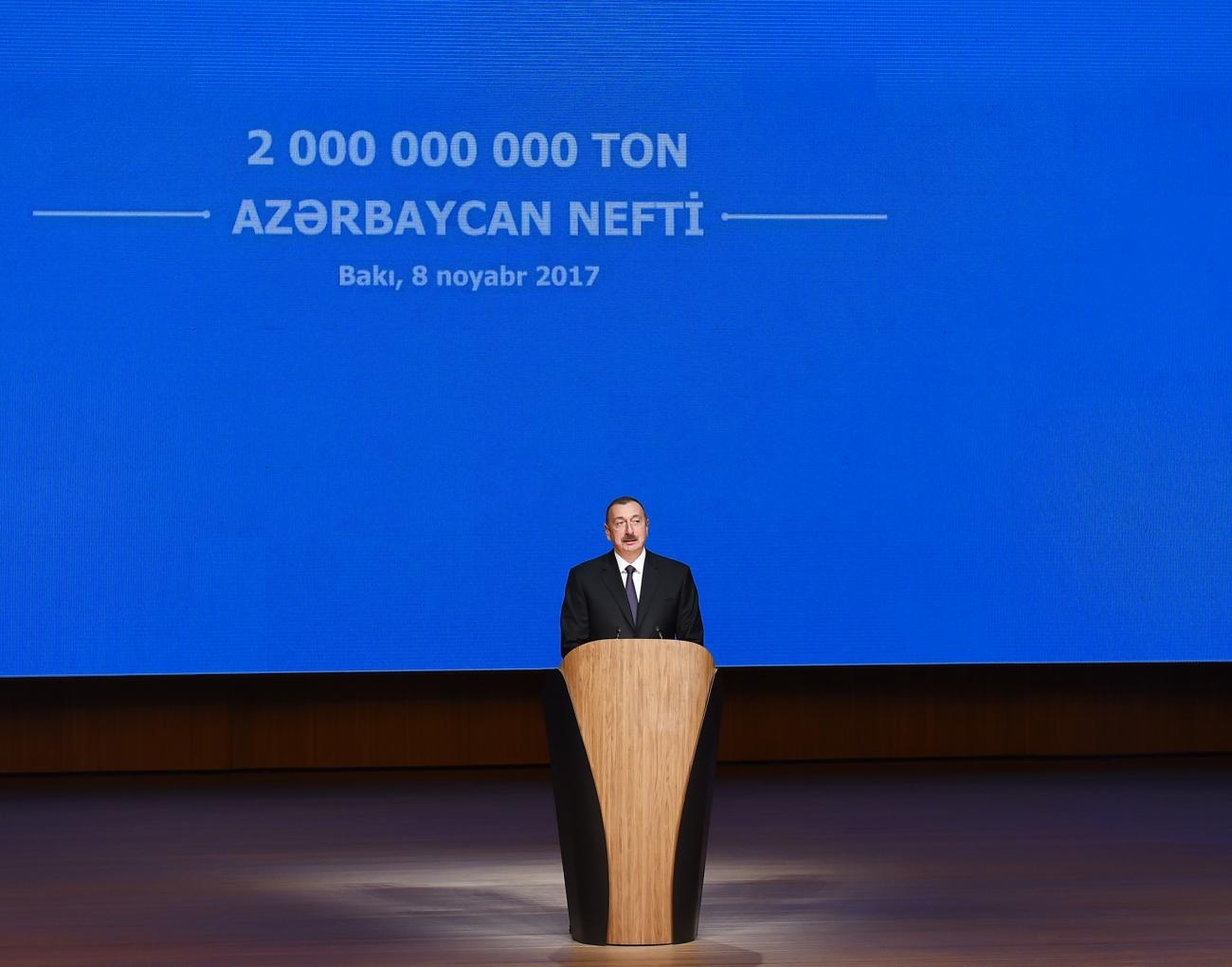
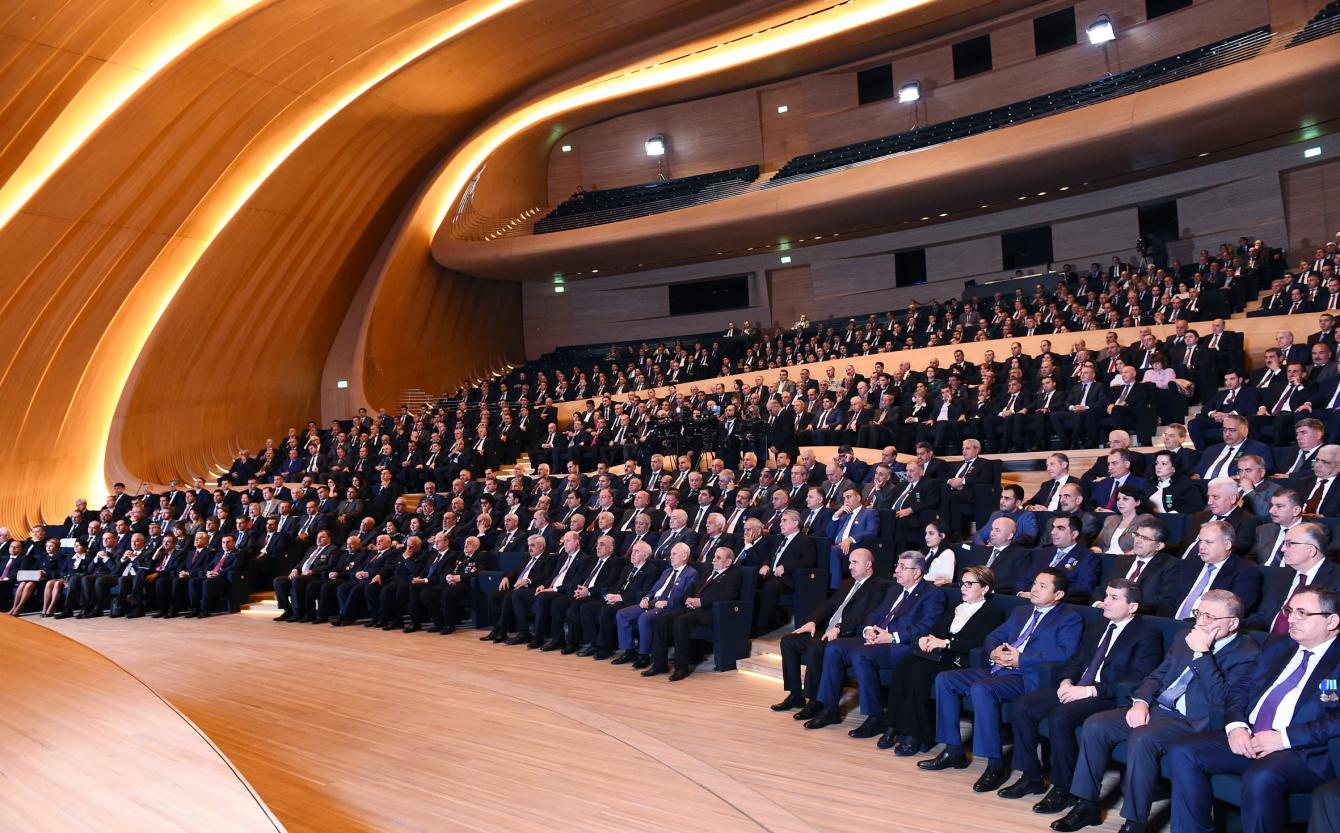
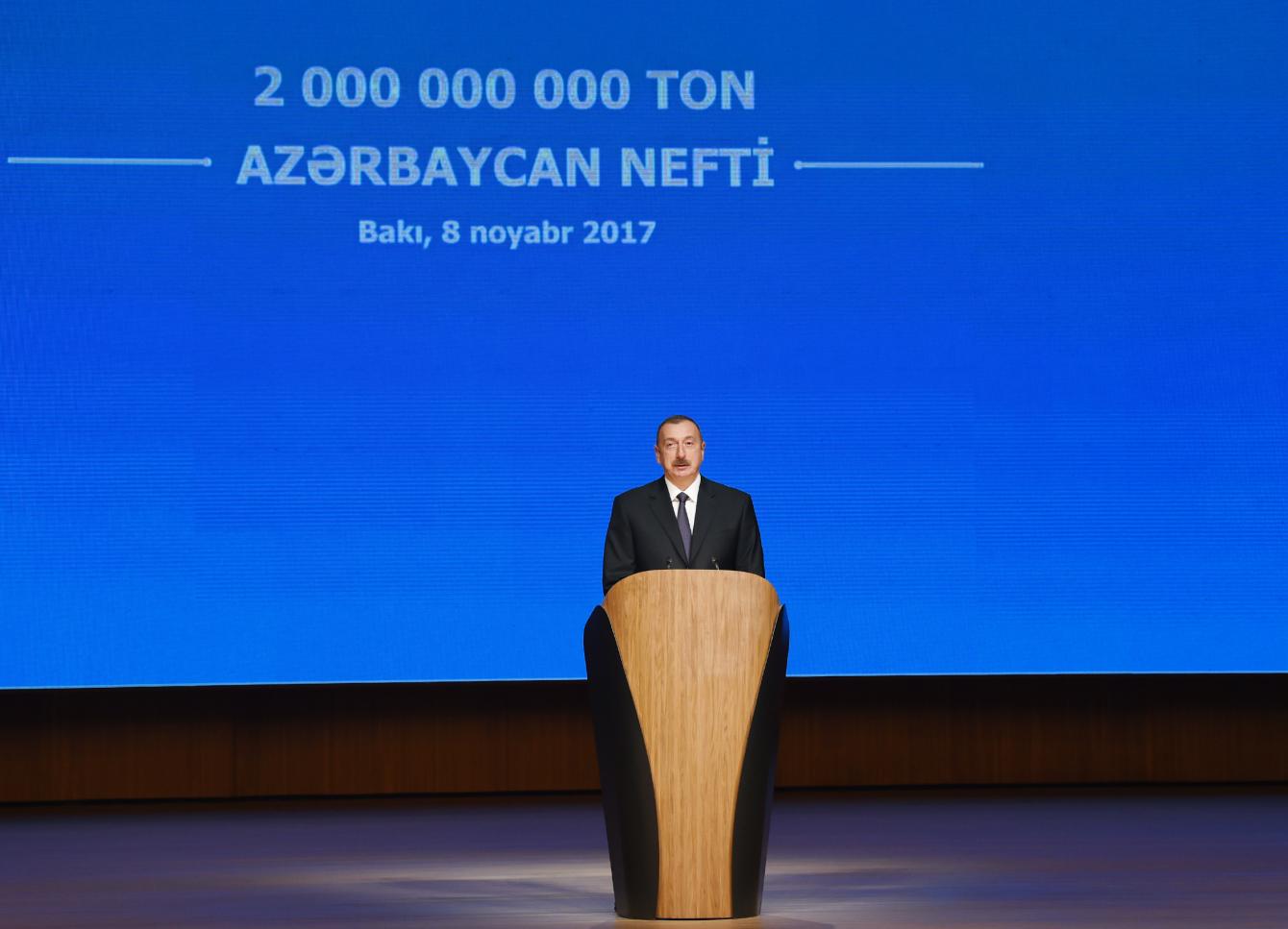
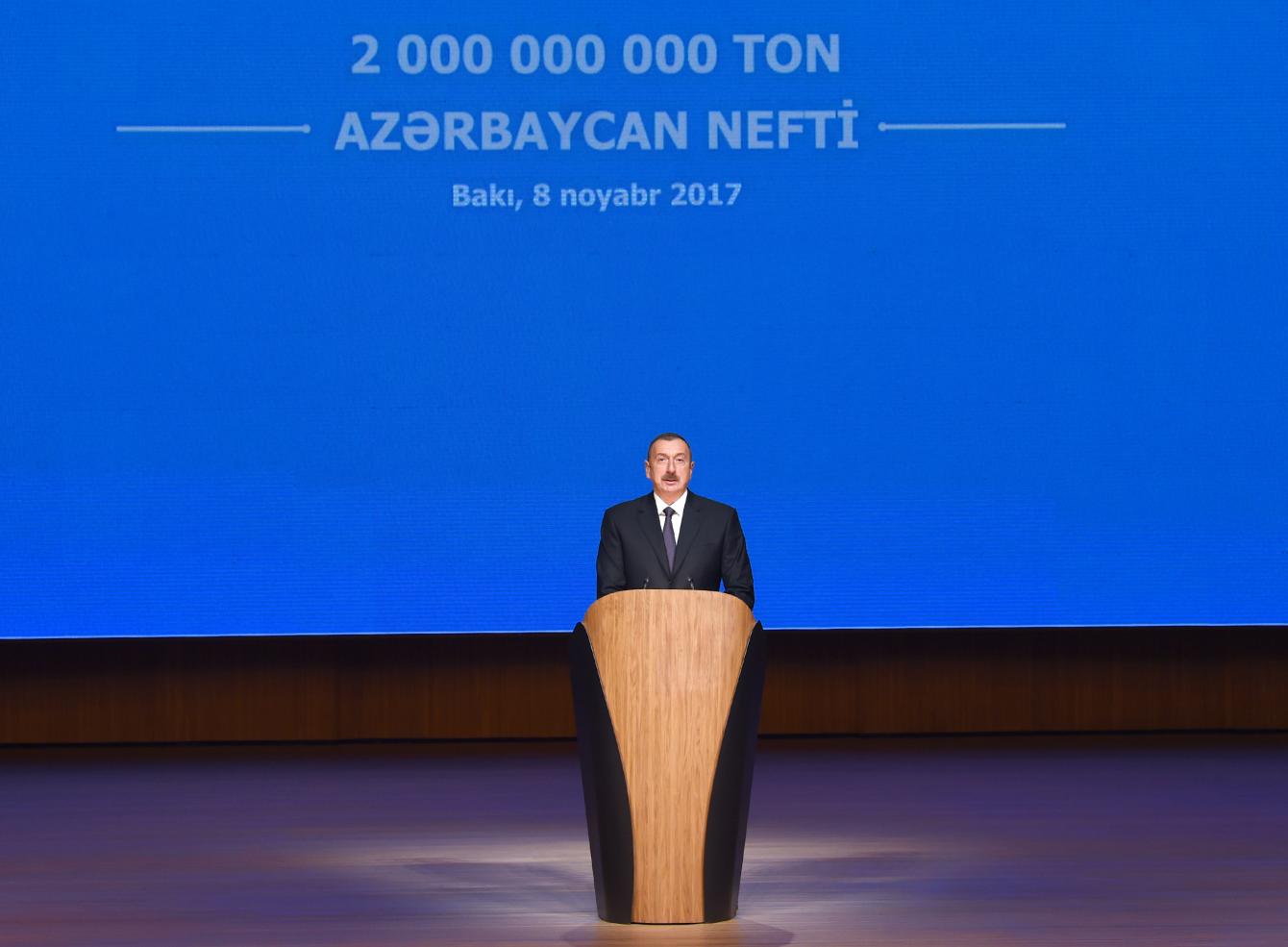
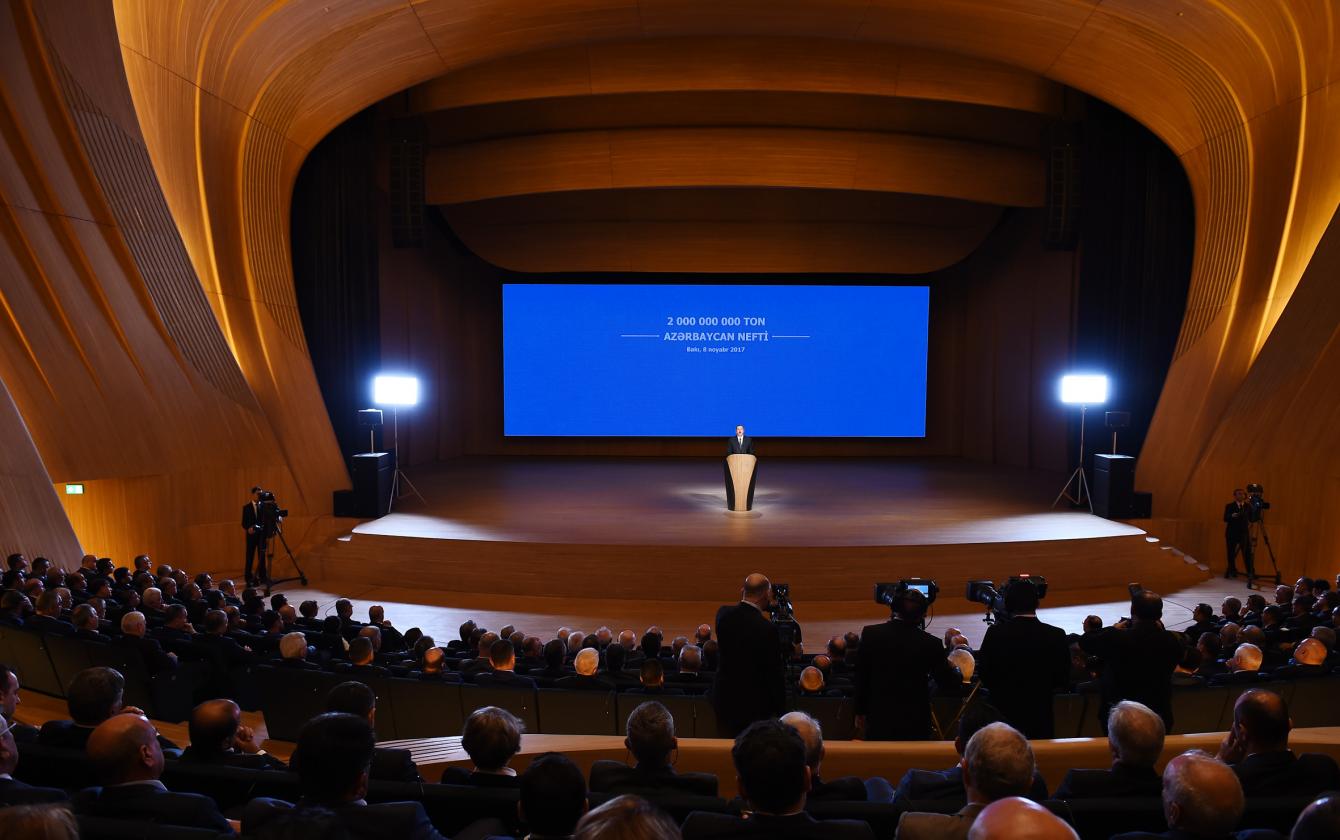

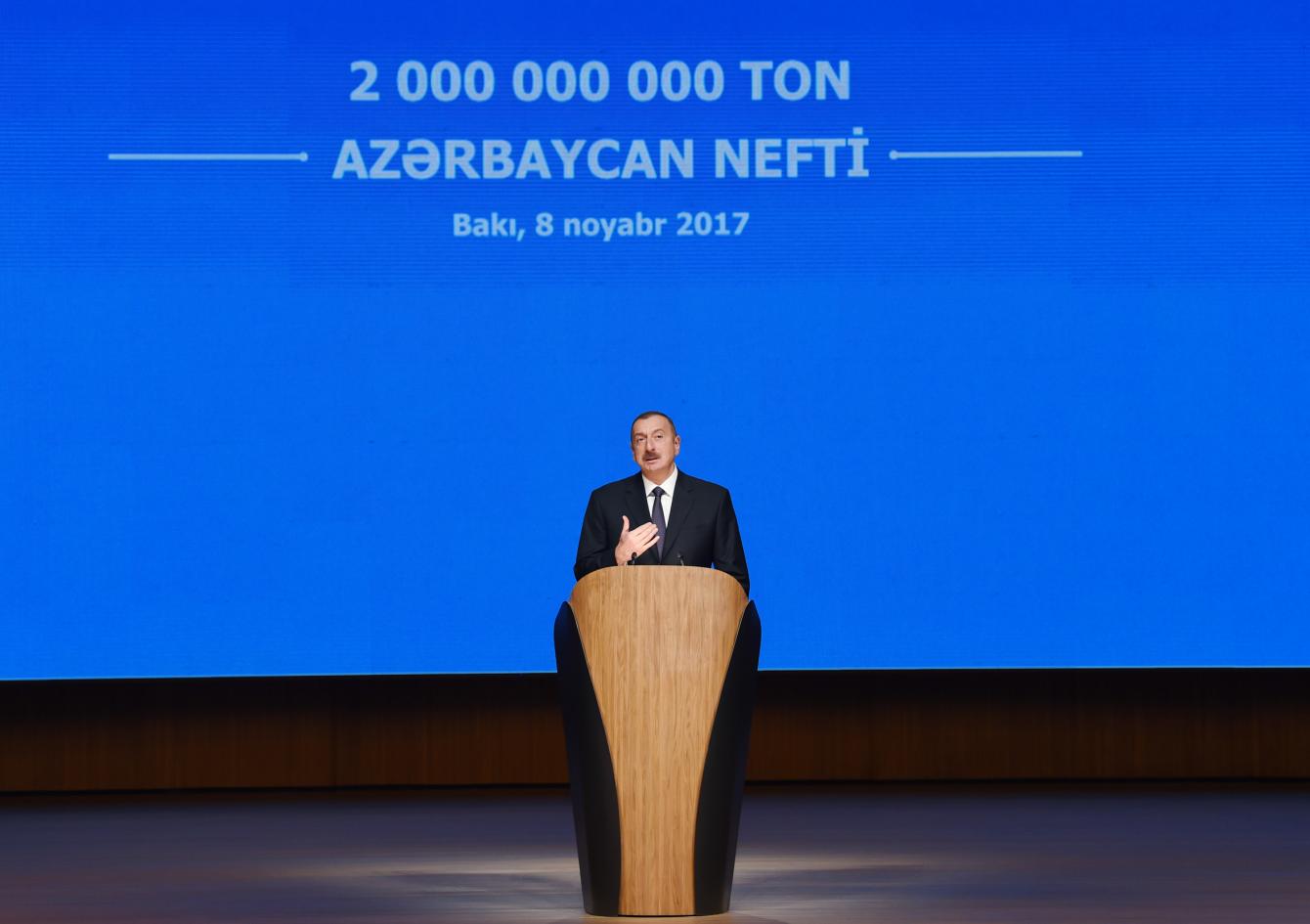
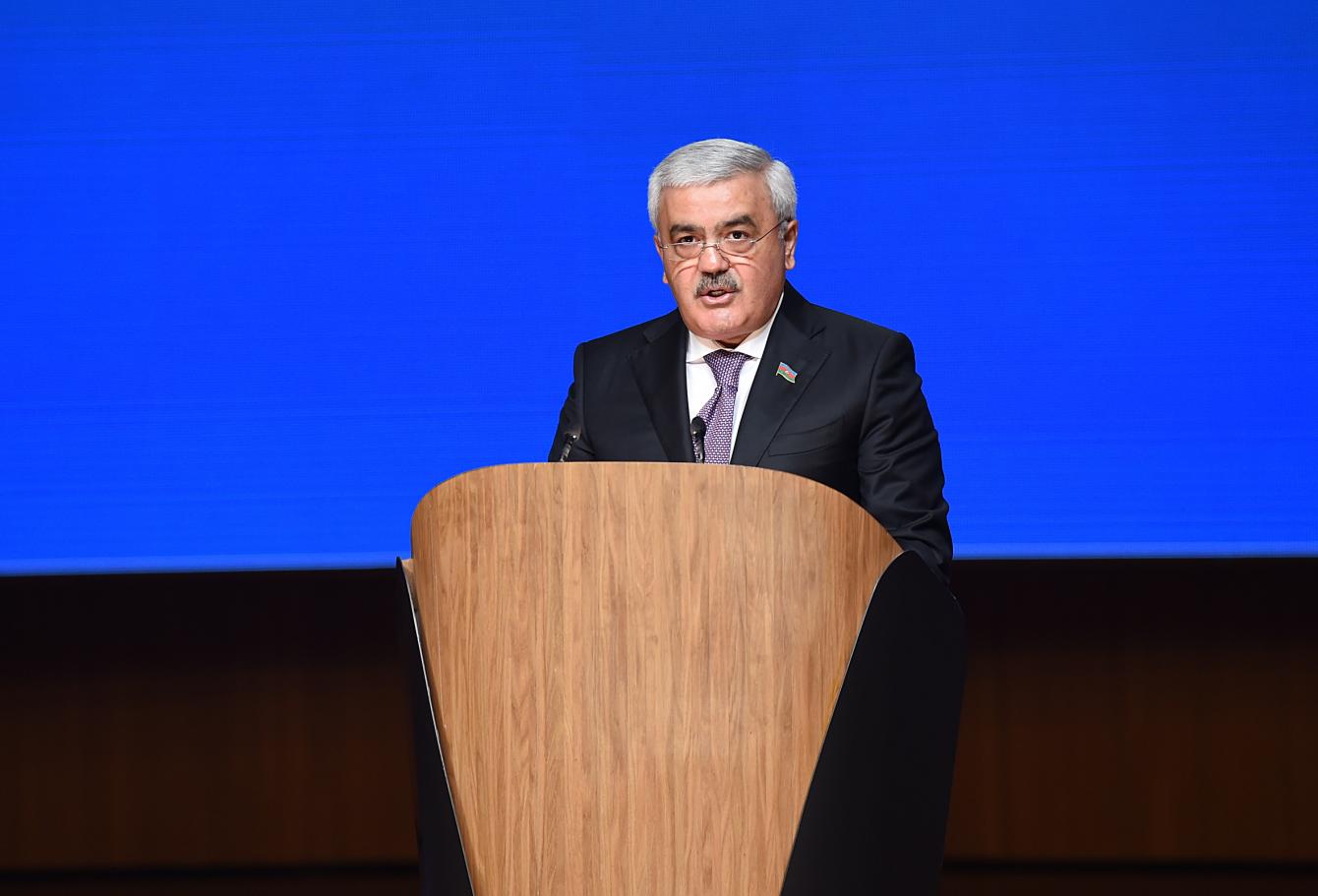
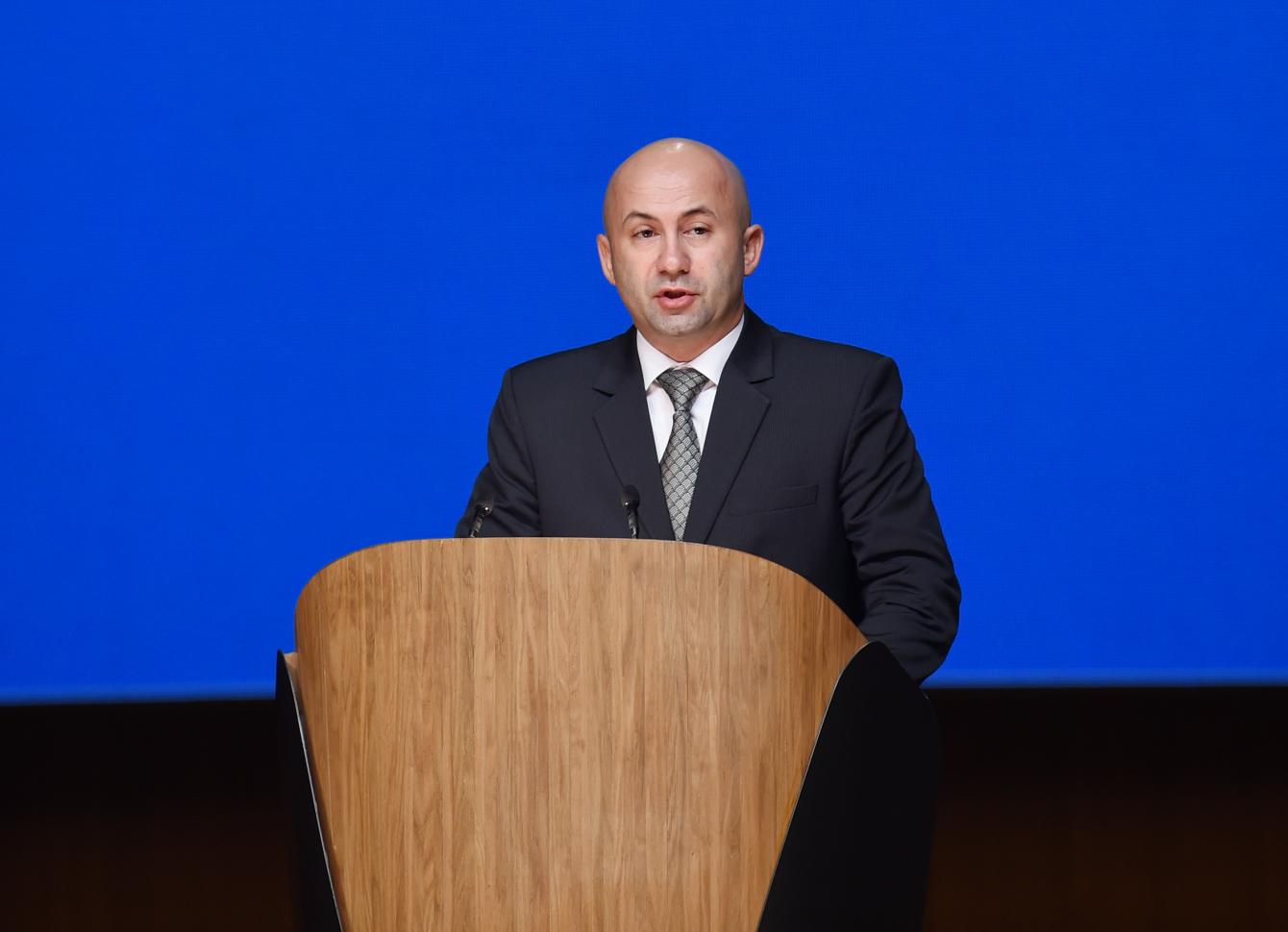
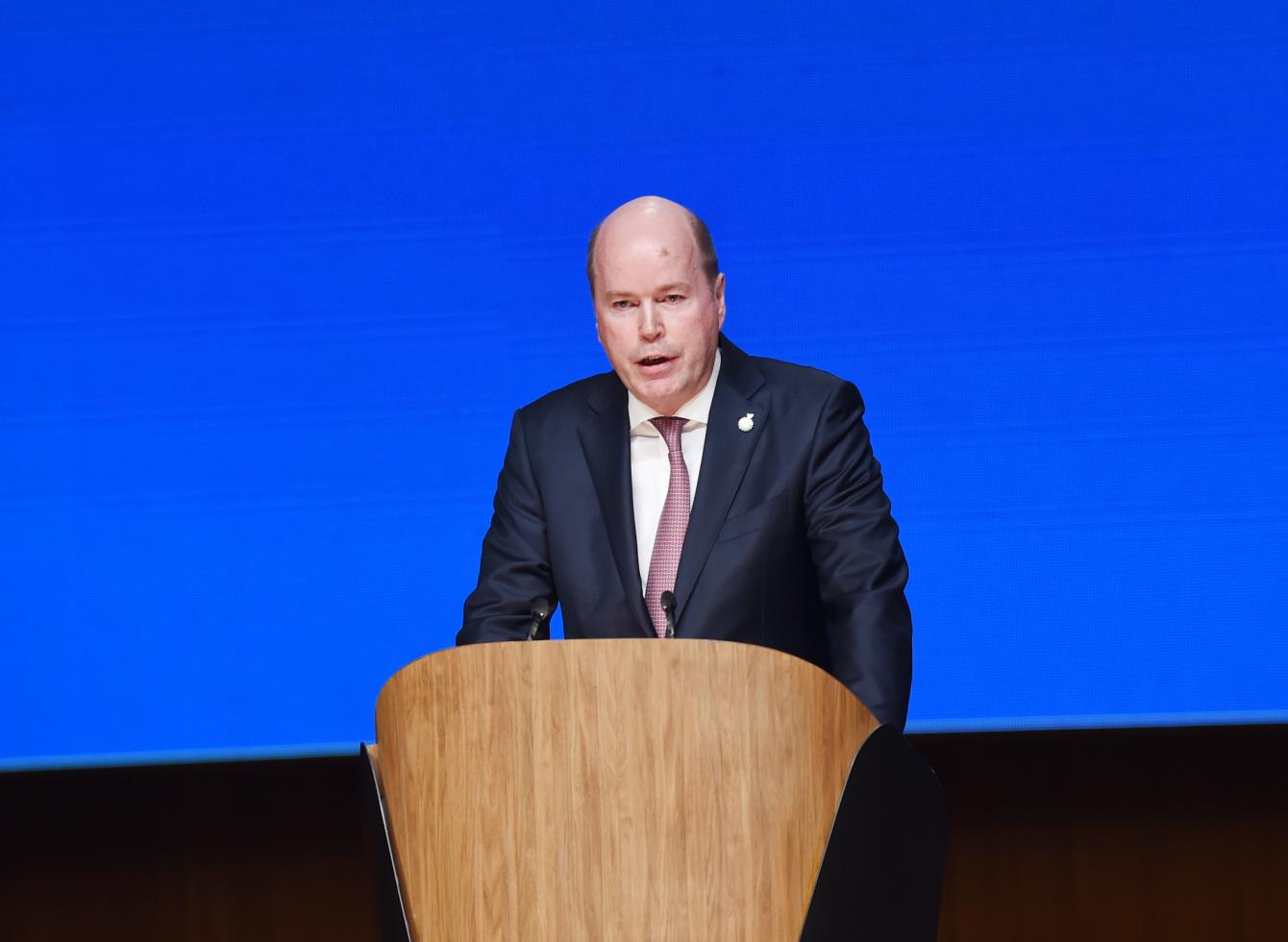

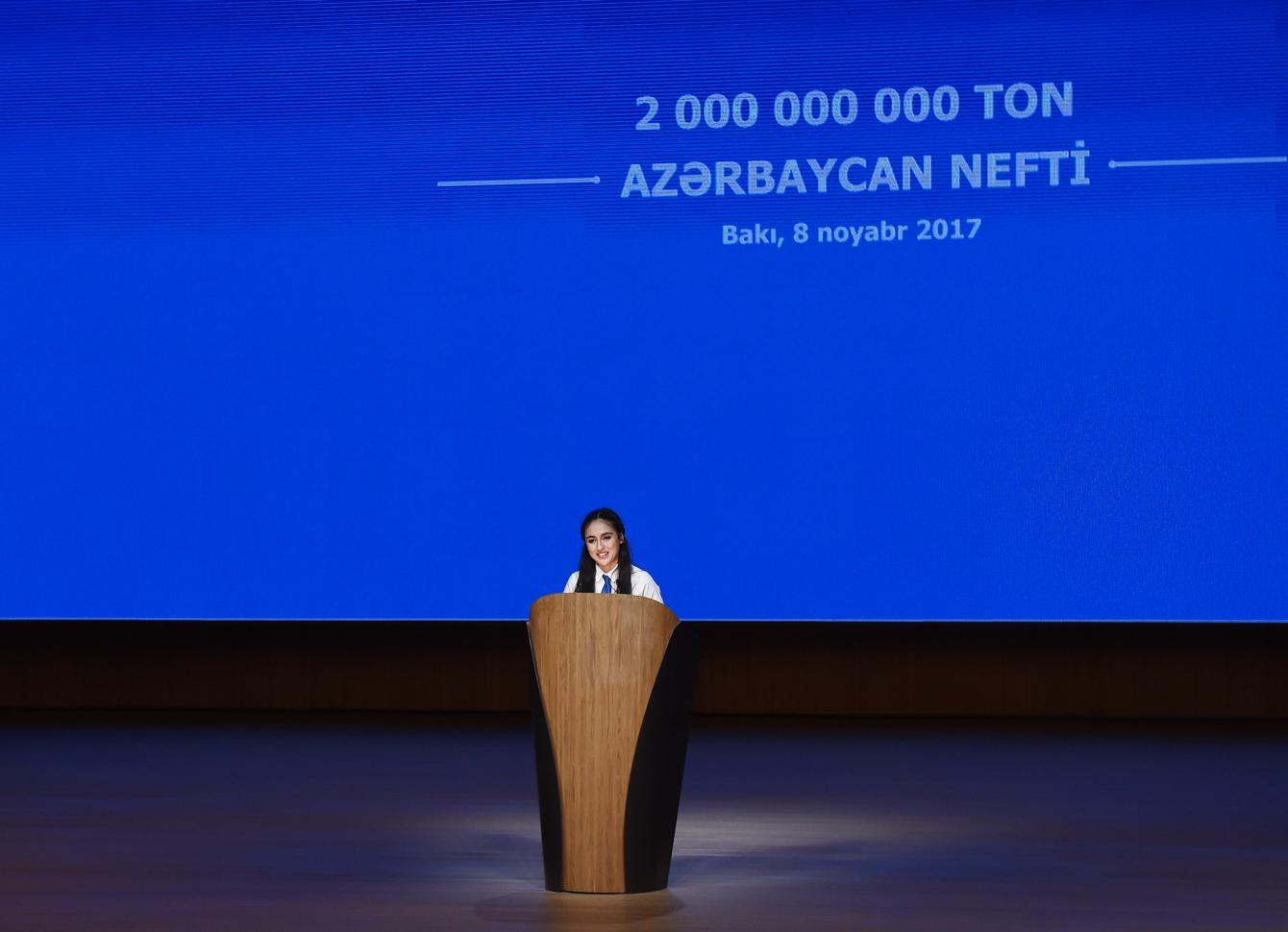
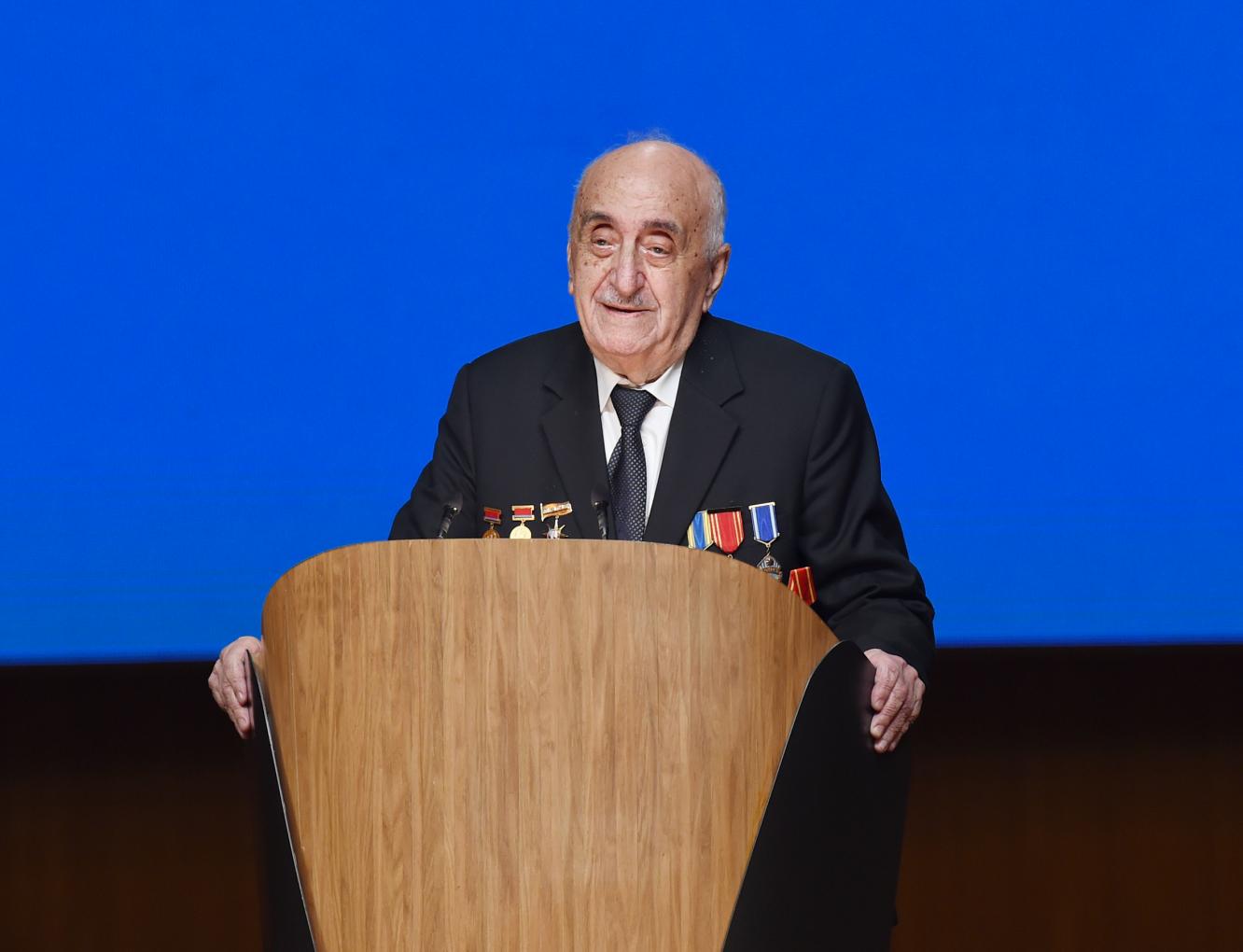
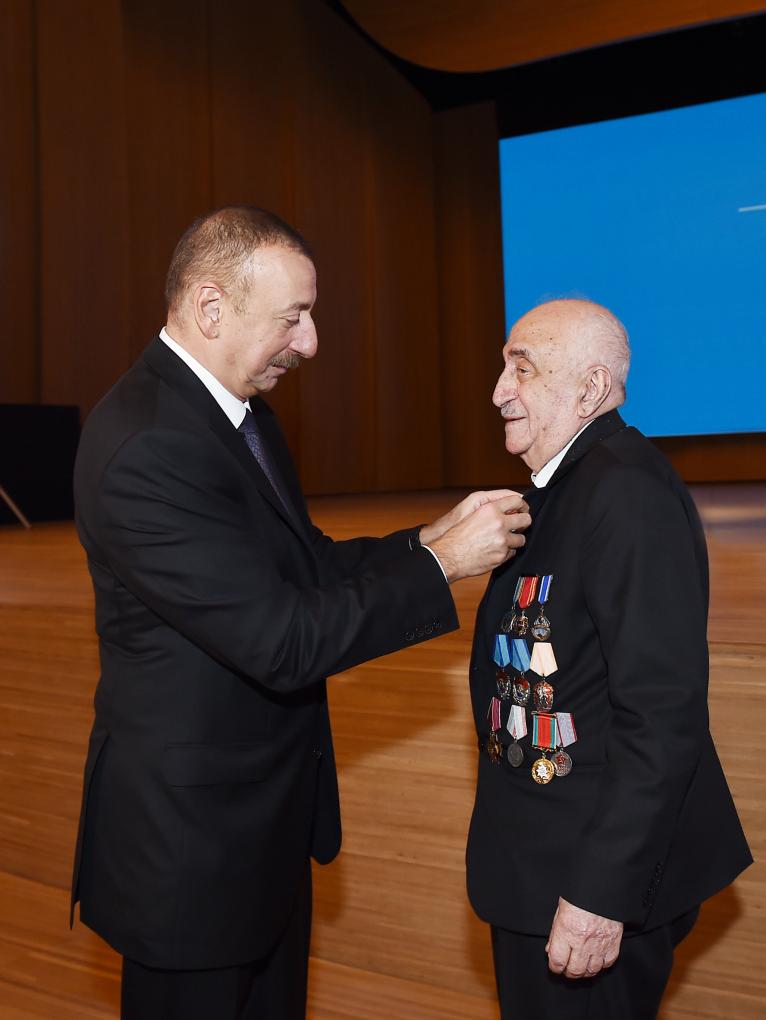
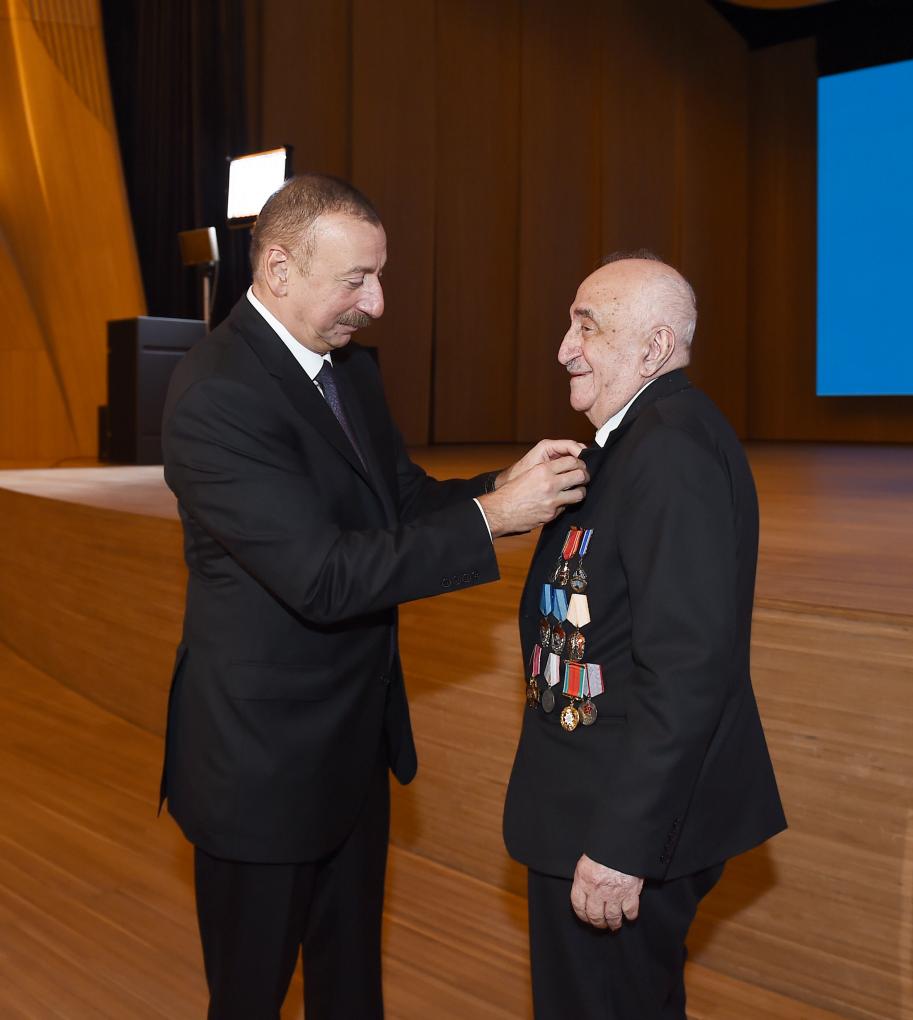
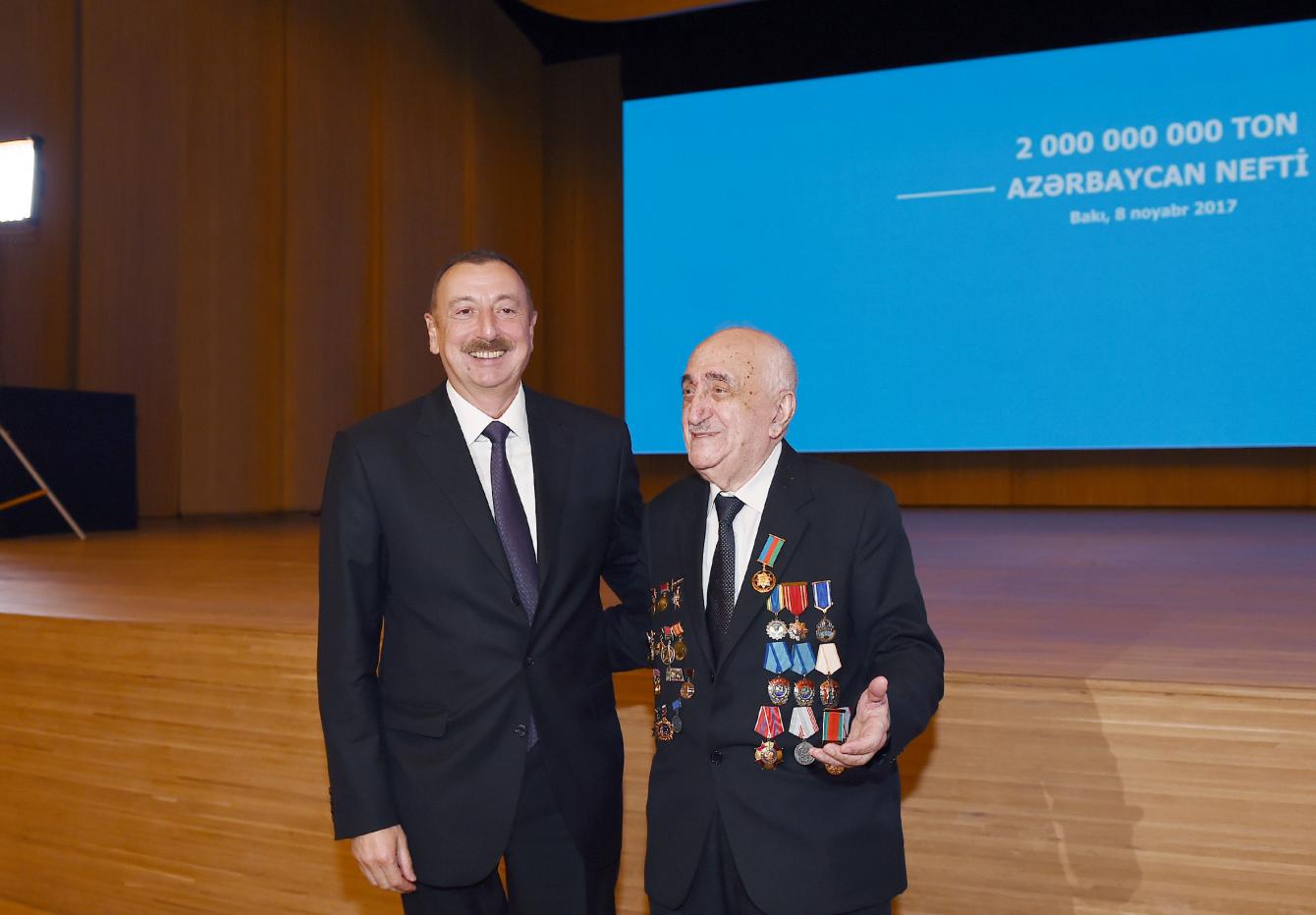
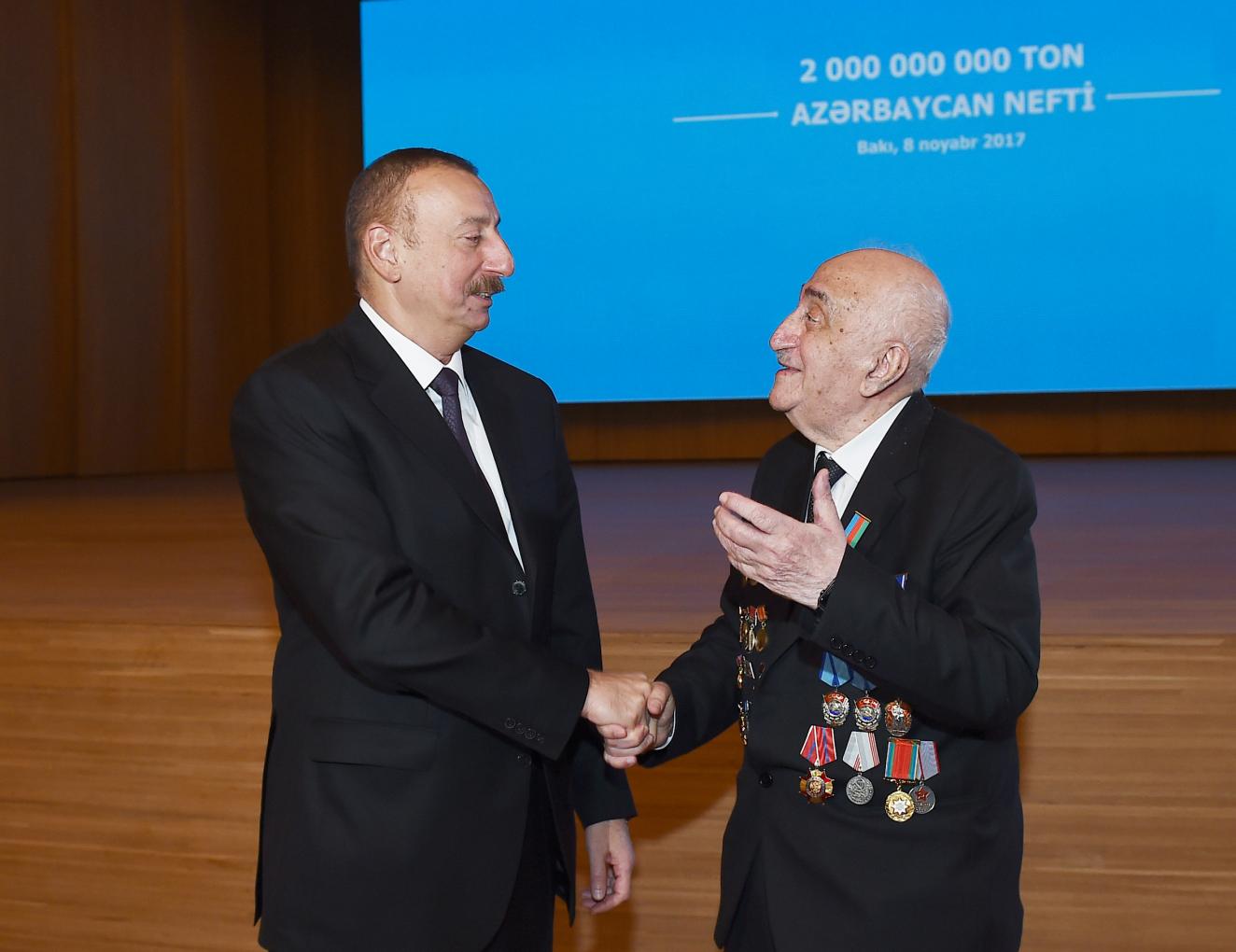
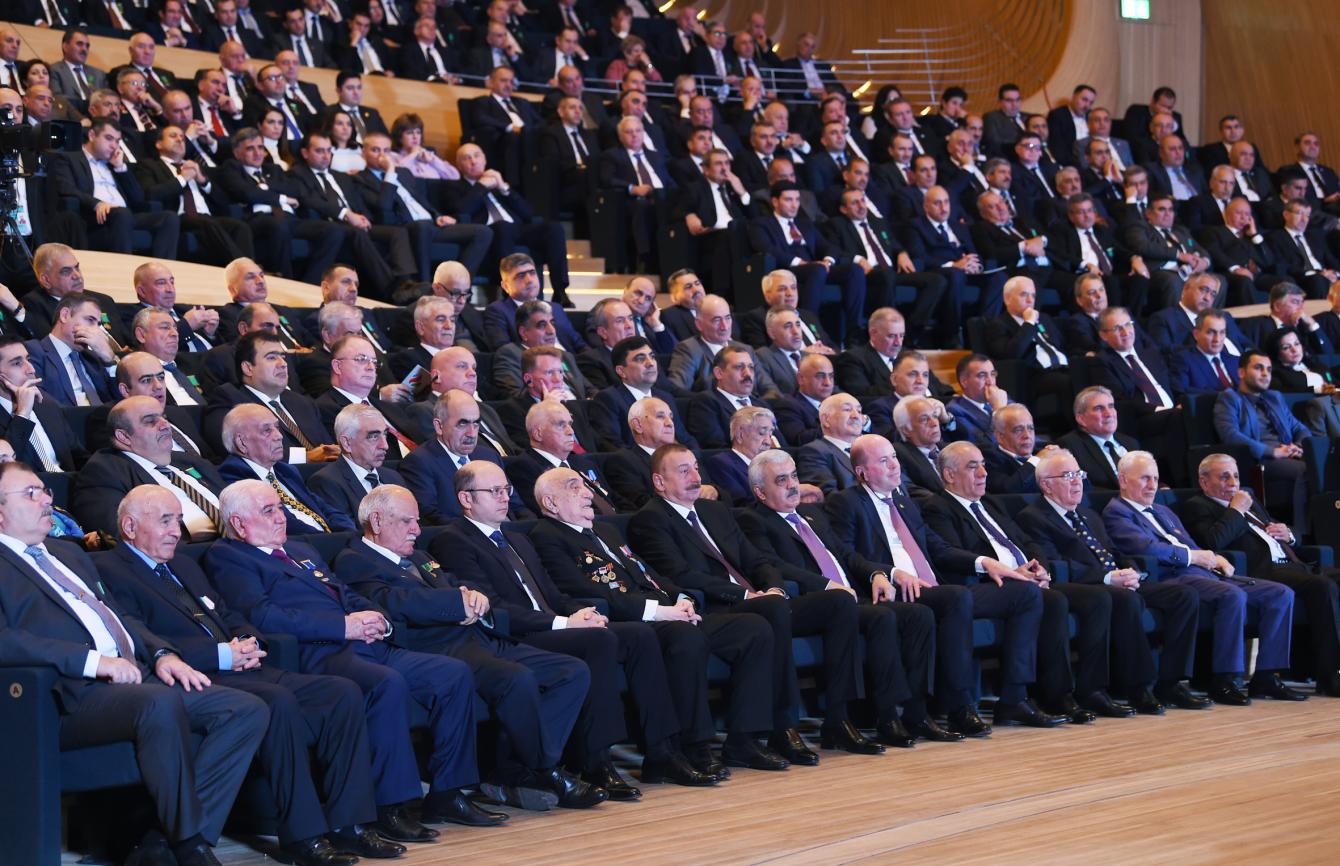
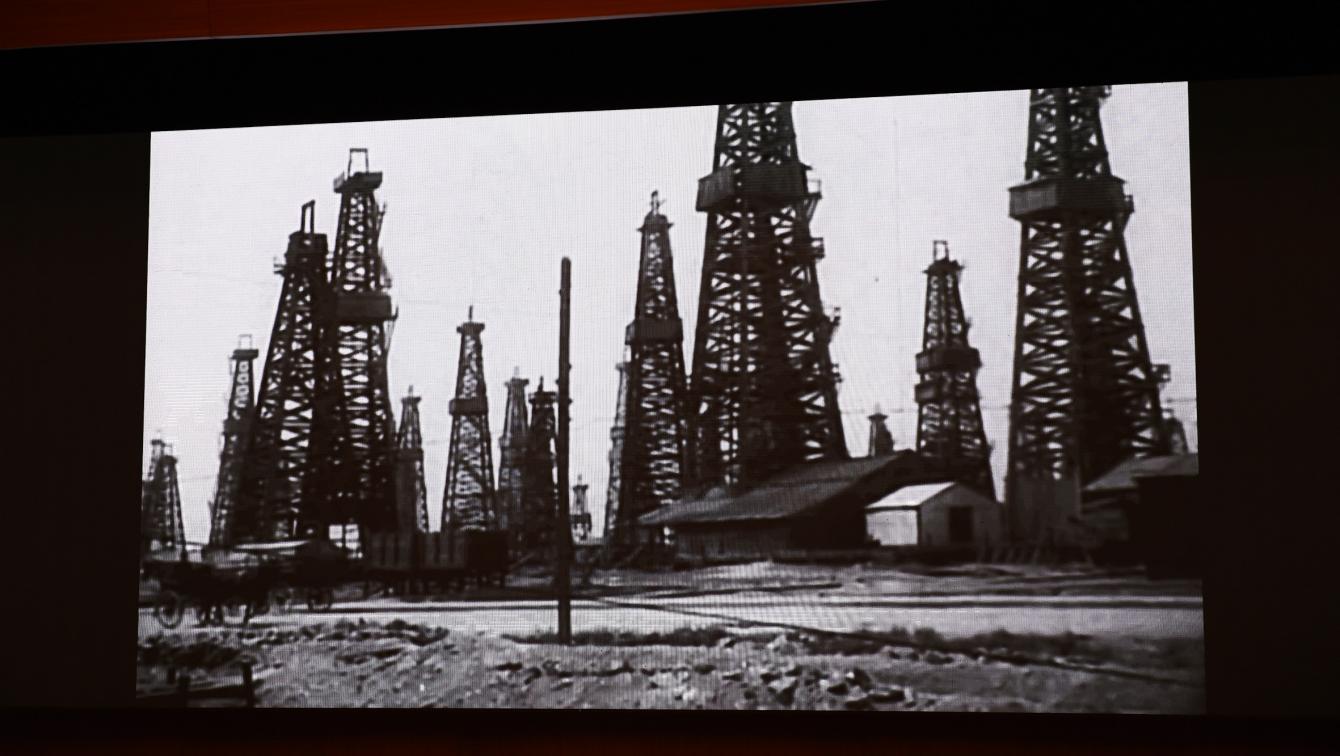
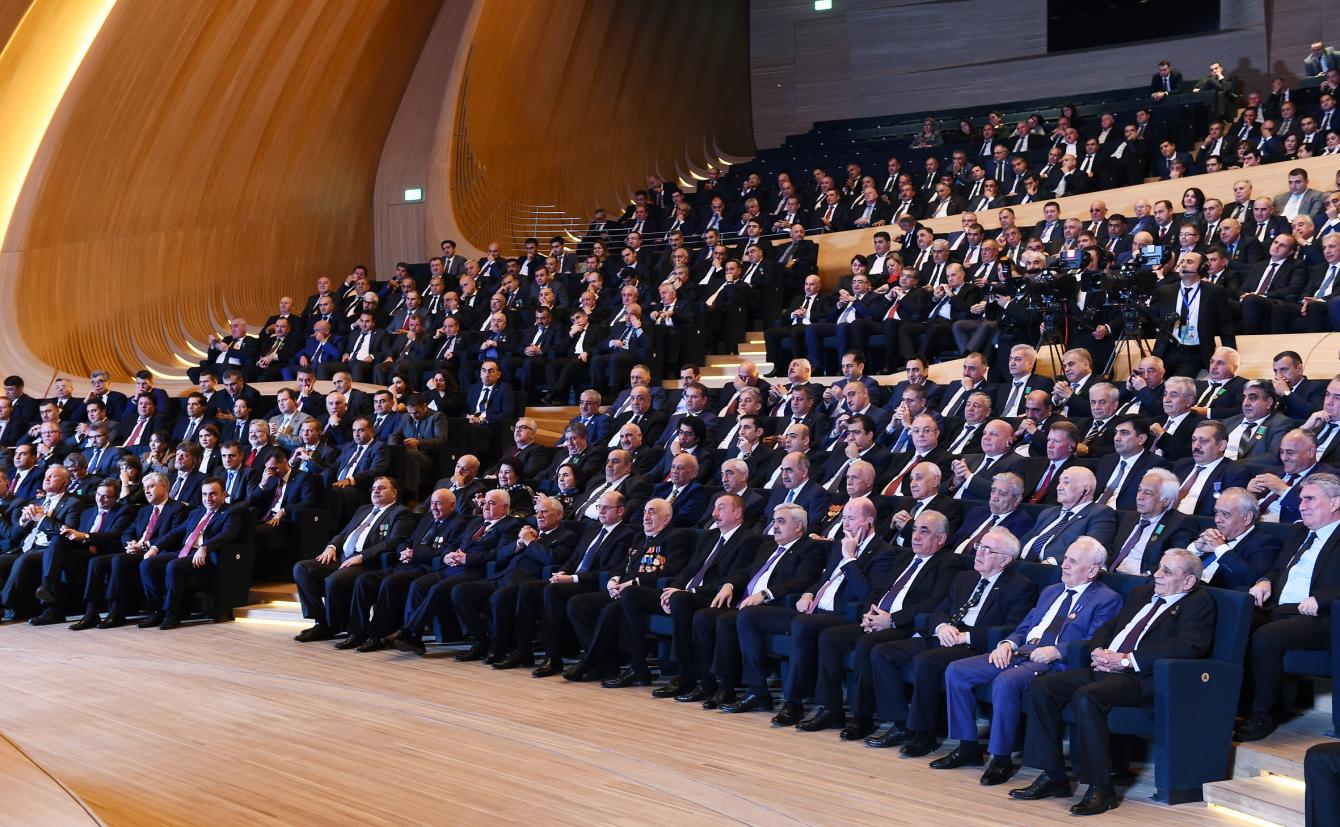
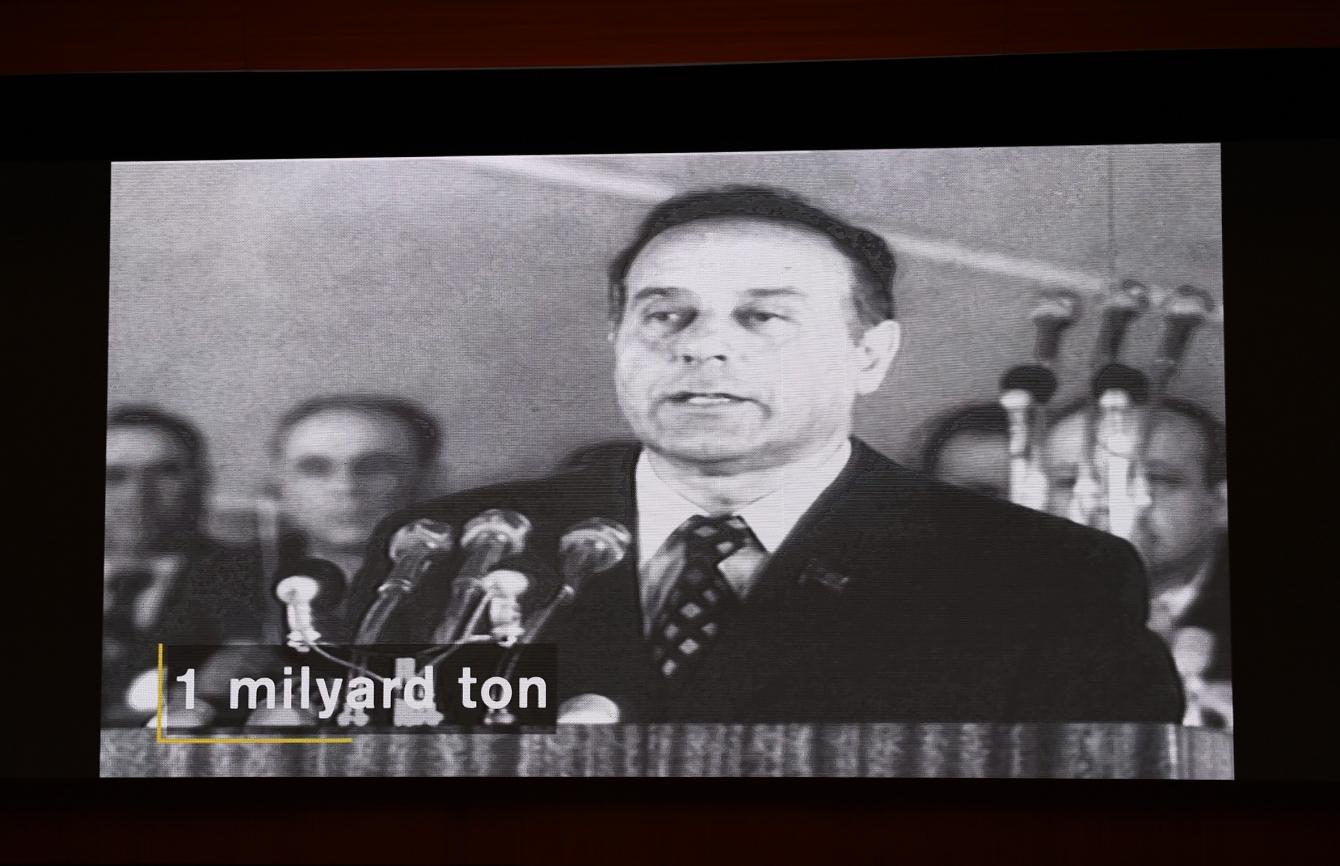

His Excellency Mr. Ilham Aliyev, President of the Republic of Azerbaijan
Excellency,
On the auspicious occasion of the celebration of the National Day of the Republic of Azerbaijan on 28 May, the Government and people of the Republic of South Africa join me in...
28 May 2025, 18:37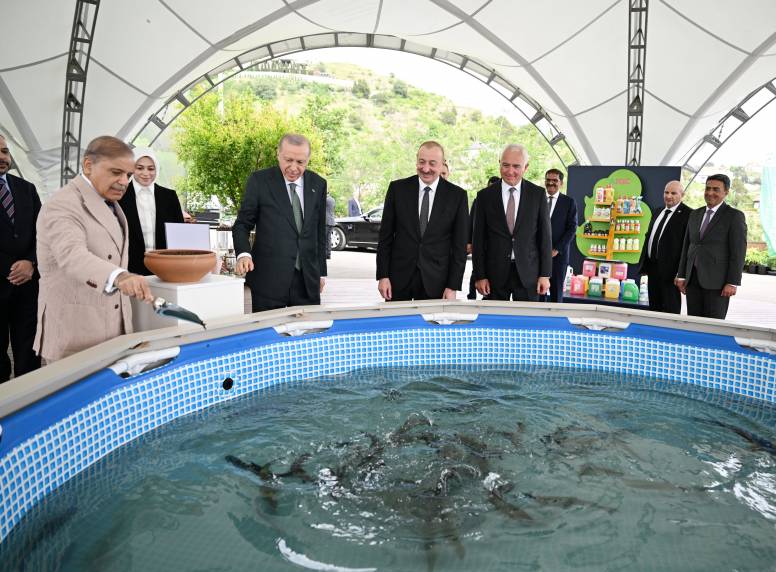
His Excellency Mr. Ilham Aliyev, President of the Republic of Azerbaijan
Dear President Aliyev,
On behalf of the American people, I want to congratulate you and the people of Azerbaijan on your Independence Day.
We value our relationship with the Republic of...
28 May 2025, 17:40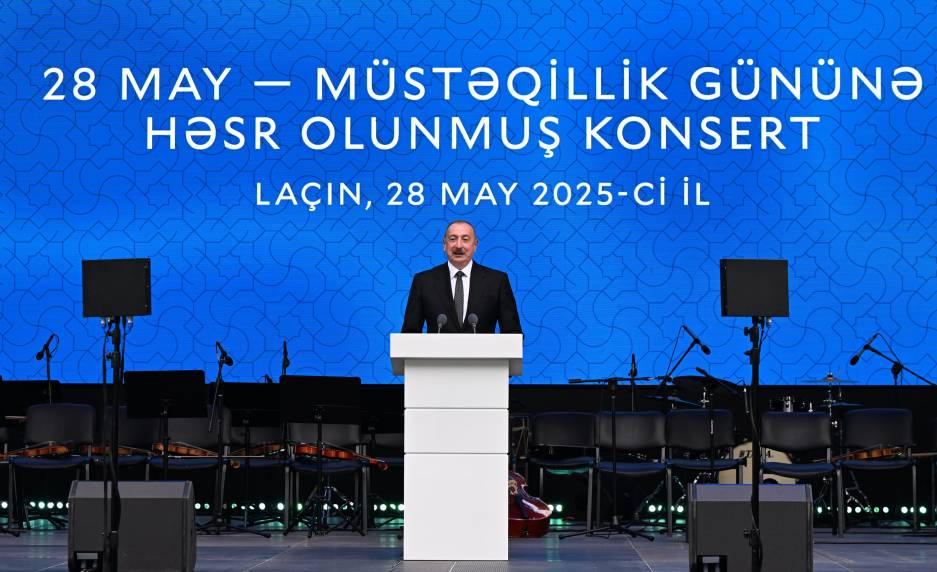
His Excellency Mr. Ilham Aliyev, President of the Republic of Azerbaijan
Dear Mr. President,
On the occasion of Azerbaijan's Independence Day, I extend my warmest congratulations to you and the people of Azerbaijan. I wish your country continued progress,...
28 May 2025, 15:25His Excellency Mr. Ilham Aliyev, President of the Republic of Azerbaijan
Your Excellency,
On behalf of the International Secretariat of the Organization for Democracy and Economic Development - GUAM and me personally, I would like to extend our most sincere...
28 May 2025, 13:58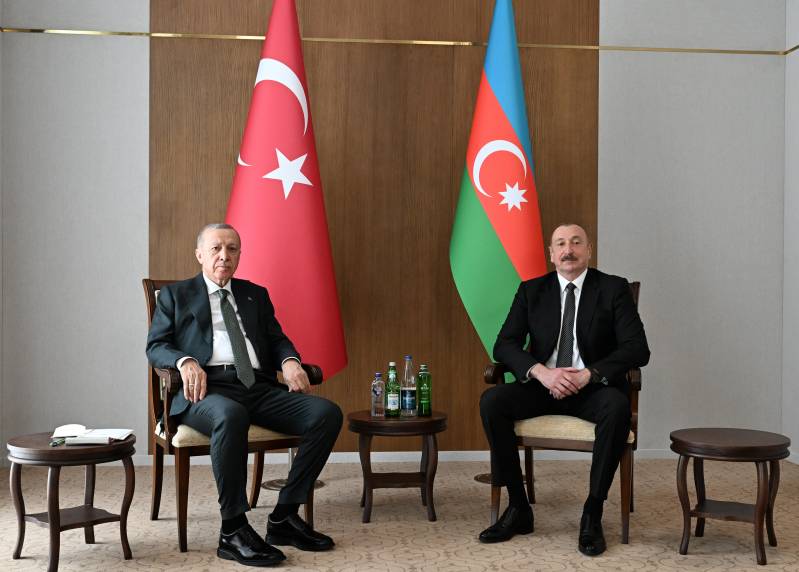
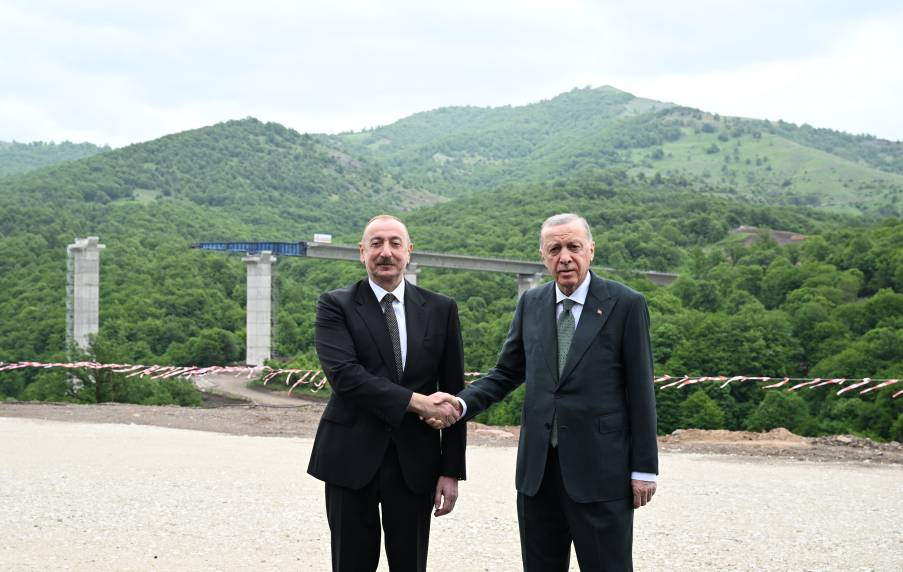
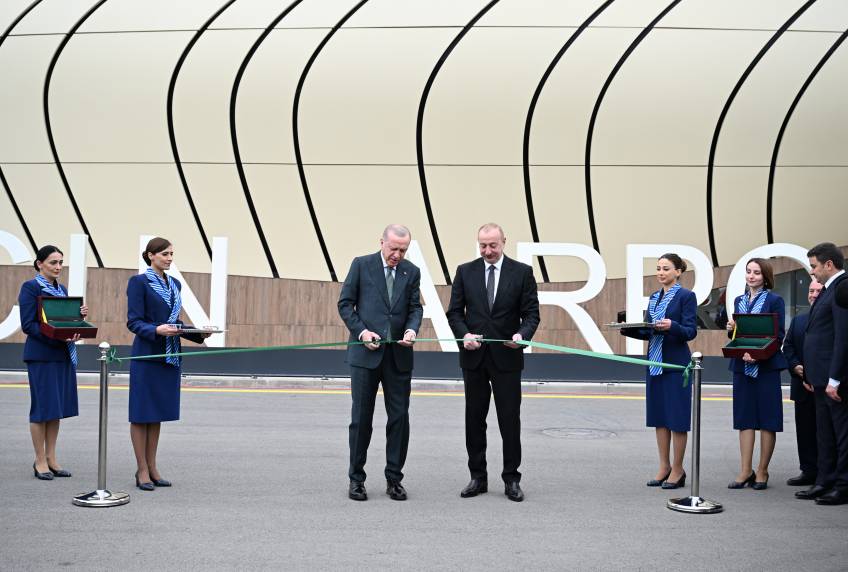
His Excellency Mr. Ilham Aliyev, President of the Republic of Azerbaijan
Dear Mr. President,
On the occasion of the National Day of Azerbaijan, it is with sincere joy that I send Your Excellency, on behalf of the Portuguese people and myself, greetings and wishes of...
27 May 2025, 19:55